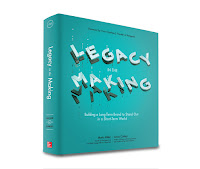Reprinted courtesy of WSTNN.com
I was having a discussion with a friend of mine who was complaining about how bad the world is today, and I kept telling him that he needs to get some perspective. I told him to compare how things are to how they were ten, twenty, fifty, and one hundred years ago. Unfortunately, I didn’t have all my facts at the time. Now I do.
It was by chance that I came across the book, Factfulness: Ten Reasons Why We’re Wrong About the World – and Why Things Are Better Than You Think by Hans Rosling, which is extremely eye opening.
Rosling was an advisor to the World Health Organization and UNICEF, along with being a medical doctor and professor. He has stated that it is amazing how much people in general and people in power specifically, don’t know the real facts.
As a matter of fact, Rosling came up with a set of 13 fact questions, and has shown that a group of chimpanzees could answer the questions better than groups of people. Even top business and political leaders at the World Economic Forum in Davos couldn’t get two out of three questions right. This in spite of the fact that they all should have had this data at their fingertips or the top of their heads.
What questions, you might be wondering. Here is one example. How many of the worlds one year old children have been vaccinated against some disease? 20%, 50%, or 80%? If you guessed 20% or 50%, you would be wrong. The real fact is 80%.
Here’s another one. In the last 20 years, the proportion of the world population living in extreme poverty has, either almost doubled, remained the same, or almost halved. The answer is almost halved.
One more. In all low income countries across the world, how many girls finish primary school? 20%, 40% or 60%? It is 60%.
Chapter 2, The Negativity Instinct, has a whole section on how the world is getting better.
- Extreme poverty has dropped from 50% in 1966 to 9% in 2016
- Life expectancy worldwide has gone from around 45 years in 1950 to 72 years in 2017
- Oil spills have dropped from 636 in 1979 to 6 in 2016
- The percentage of children dying before their fifth birthday fell from 44% to 4% (worldwide)
- Plane crash deaths per 10 billion passenger miles have dropped from 2100 to one
- Ozone depletion of 1000 tons of ozone depleting substances used from 1,663 to 22
- and so on with many more examples.
Those are just some of the bad things decreasing. He also provides facts on good things increasing, such a worldwide literacy rising from 10% to 86%, and child cancer survival rising from 58% to 80%.
My favorite chart that he provides showing, in his opinion, culture and freedom, is the number of guitars per million people, rising from 200 in 1962 to 11,000 in 2014.
I have barely touched the surface about what is covered in this book. It is filled with anecdotes, graphs, and pictures, and is easy to read and understand.
I highly recommend Factfulness. After you read it, you will be amazed what you learn and what you didn’t know.



